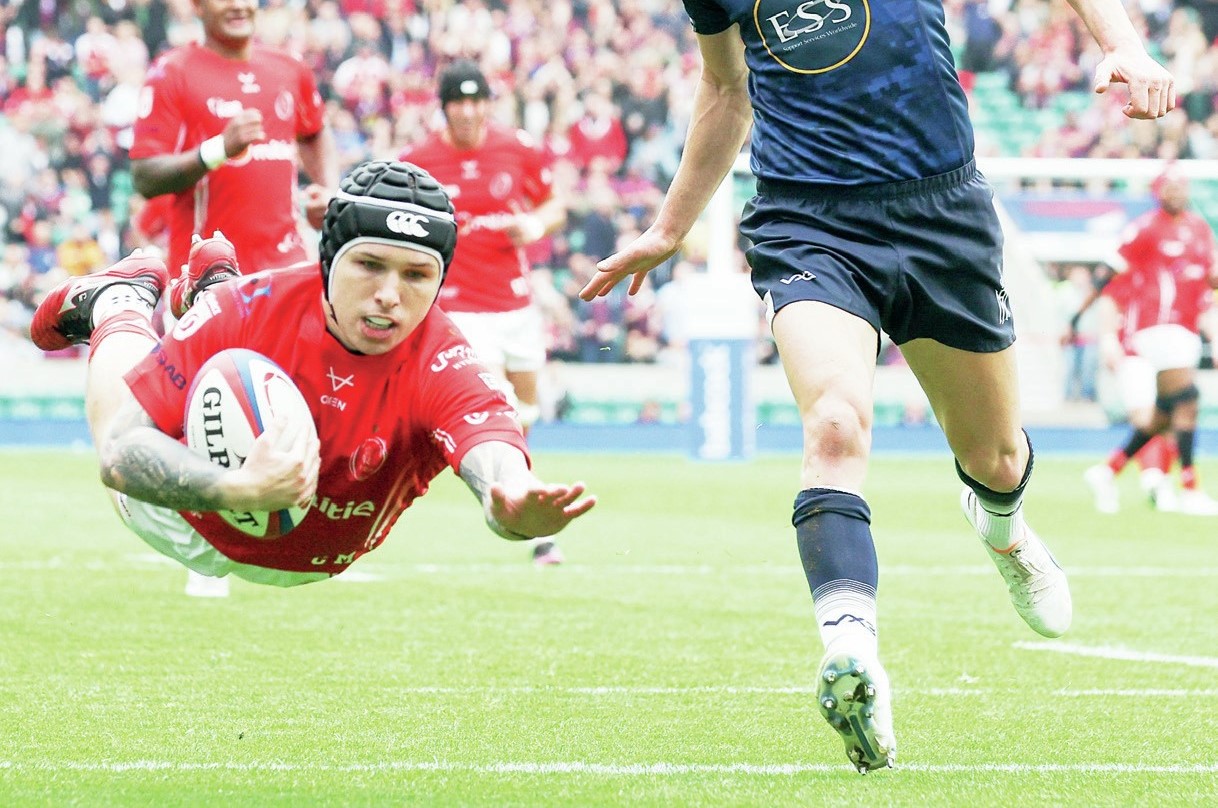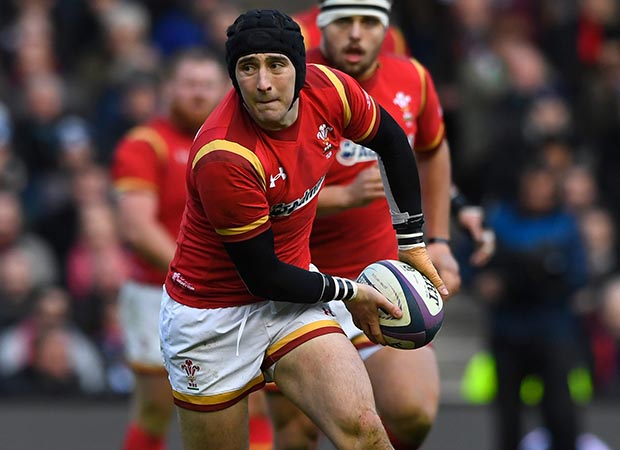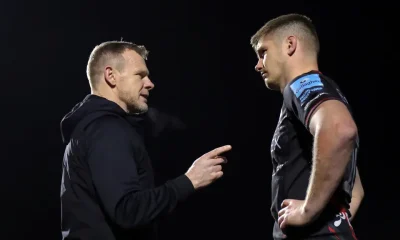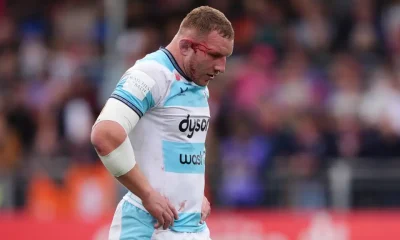
Inter Service Champs – A look ahead to this season’s big matches involving the Army, Navy and RAF
“The win we had in 2019 is the highlight of my career.”
When a 72-cap, Premiership-winning face of the national women’s game – not to mention a scorer of a Rugby World Cup final hat-trick – says a comment like this it is worth listening to. Because in those 12 words England and Leicester Tigers hooker Amy Cokayne has summed up just what it means for the rugby players of the Royal Navy, British Army and Royal Air Force to pull on their respective colours and compete for the Inter Service Championship.
Now 27 years old, Cokayne has been as synonymous with Forces rugby as with England since she completed her RAF training five years ago, and last week at Twickenham was alongside several teammates and competitors as the 2024 Inter Service Championship was launched.
Launched in 1920, when the newly-formed RAF joined the Royal Navy and British Army in a threeway competition to find out who was the best rugby team among the UK Armed Forces, the Inter Service Championship has only been interrupted by World War II and the Covid-19 pandemic.

“We are extremely proud of the history the Inter Service Championship has,” says Captain Sarah Oakley (Royal Navy), Chair of the Inter Service Championship and Army Navy Match committees.
“The standard of the rugby is always extremely competitive, and over the years some fantastic international players have taken part, the likes of Tim Rodber, Rory Underwood and Rob Wainwright, along with Mattie Stewart and Paul Hull, who both joined us at Twickenham last week.
“While rugby has changed immeasurably in the professional era, the sport remains important within the military, and we are fortunate to have the support of the three Services as well as the Ministry of Defence. This has enabled us to still be able to provide players like Semesa Rokoduguni and Sam Matavesi, Amy Cokayne and Bethan Dainton, with the opportunity to pursue professional careers alongside their military commitments.”
The support received in recent years by this quartet and others is nothing new, as Paul Hull, who won all of his England caps while still a physical training instructor in the RAF, acknowledges.
“It was a vehicle for me to progress my rugby career,” he recalls. “I was a wannabe footballer, and when I left school I had some decisions to make in terms of what sport I went into. When I joined the RAF that took care of itself with rugby and how they supported you. Playing for the RAF Colts launched my career in terms of eventually playing at Twickenham.”

Age group rugby still plays a vitally important part of the pathway of all three Services and, with the Under-23 Championship played before Christmas, there is always the possibility that individuals may represent their Service in both competitions in the same season, something which the Army’s Jack Johnson did with aplomb in 2021/22.
The fly-half earned his place in the senior squad by being the key figure in the red shirts’ successful Under-23 campaign, before going on to be player of the match in the Army’s win over the RAF at Kingsholm and then retaining his place in the 10 shirt for a memorable nailbiting success against the Royal Navy.
“Coming from the Under-23s into a training camp with Semesa Rokoduguni was good for me to learn about game management,” Johnson recalled after the Army’s recent win over Cambridge University.
“As a young 23-year-old I just wanted to play from everywhere, but he took me under his wing and told me when to go and when not to go, when to use your boot to pin teams back and capitalise on their mistakes.
“Then playing at the UKAF World Cup last year gave me a lot of confidence and understanding of how military rugby works – it’s probably what I needed just to push me into believing I’ve got the ability and skills. It was a great experience and nice to be out there with a good group of lads.”
Even given its status outside top flight professionalism, the Inter Service Championship is still the last remaining competition to give amateur players the opportunity to shine in a pressure cooker environment in front of tens of thousands of passionate supporters at Twickenham.
Last year Cameron McDonald took the moment by the scruff of the neck, capping a year which included international debuts for Germany’s Sevens and Fifteens teams by scoring a hat-trick of tries for the Army, albeit in a losing effort as the Navy took home the overall title for the first time since 2016.
Cameron, who was a Reservist in the Royal Engineers at the time, lined up with older brother, Michael, a full-time Royal Engineer both that day, and also for Germany in their Rugby Europe Championship win over Belgium last weekend.
Meanwhile on the bench for Belgium was the Navy’s Jordan Gott, who had started in the Belgians’ memorable opening round win over Rugby World Cup darlings, Portugal. Capt Oakley says that such individual achievements show what can be accomplished not just through talent, but also with the support of Chains of Command.





“We are indebted to Chains of Command across all three Services for helping to maintain the Inter Service Championship at its current level, and for supporting individual players like Michael and Jordan, as well as Bethan, Amy, and others,” she commented.
This also applies to the coaches and administrators – Senior Men, Senior Women, Under-23s and Masters – who are given the time to prepare their teams.
“At the same time we are not immune to the pressures being faced by the Armed Forces,” Capt Oakley added, “with fewer numbers of personnel, increased commitments at home and overseas, and the increased awareness of player welfare which is common across rugby union.
“We are taking our time to plan for the future, which includes making more of the other legs of the competition which are not played at Twickenham, and remain committed to maintaining rugby’s place within the Services. We are also looking forward to welcoming women’s teams from defence forces across the world to England in 2025 for the second International Defence Force Women’s World Cup.”
The Inter Service Championship’s role in supporting not just rugby, but also military good causes, cannot be overstated.
Profits from the three matches are re-invested into the sport’s organisations within the Navy, Army, and RAF rugby unions, and this year’s charity beneficaries include the Royal Navy and Royal Marines Charity, RAF Benevolent Fund, and Little Troopers, which is the only tri-Service charity in the United Kingdom dedicated to supporting and celebrating all children who have one or both parents serving in the British Armed Forces, both Regular and Reserve.
“All of the Service Unions have committed sponsors, but the income we receive from the matches is vital as we look to solidify our structures and provide opportunities for current and new players, as well as coaches and referees,” Capt Oakley added.

“We have also put fundraising at the heart of our events for many years, supporting charities who provide immeasurable help to current and former personnel and their families. We’re particularly delighted to be working with Little Troopers, especially as we seek to grow Army v Navy as an occasion for all the family.”
And so to the 2024 edition, where the Royal Navy’s men will be seeking to go back-to-back for the first time in 50 years, and the RAF’s women will be wanting to overturn years of Army dominance.
Fiji and Northampton Saints hooker Sam Matavesi starred for the Navy 12 months ago, and he is confident in the squad’s ability to make its own little bit of history.
“There’s a good group of players in the Navy, and the Navy has been good in letting them explore different levels of rugby, like the Army and RAF,” he said recently. “It rubs off on everyone else, and the more people you can get playing better levels of rugby it can only help the team.”
“What we need is to back it up. We’ve got the French and then the RAF to play before the Army at Twickenham. We’ve not beaten the French in France since 2002, so there are a lot of things still to do for this group.”
For Cokayne, whose RAF teammates include current Welsh and Scottish internationals, Carys Williams-Morris and Sarah Bonar, the light blues also have plenty of potential.
“Winning in 2019 was something which came earlier than we were expecting in our plan, and definitely that day beating the Army was special,” she added. “Last year I stayed on when I maybe shouldn’t have, but it shows how much it means to me to be out there and having an impact on the game, giving as best as I can.”



























You must be logged in to post a comment Login